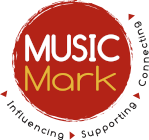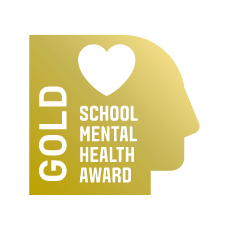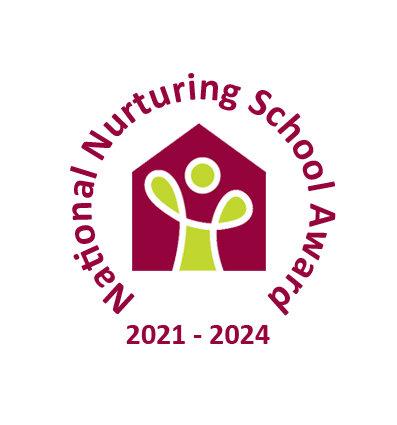County Lines
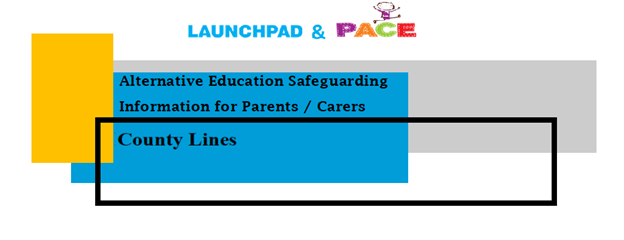
What does the term ‘county lines’ mean?
The name ‘county lines’ refers to the phone numbers, or lines, that criminal gangs which traffic drugs from urban to rural areas use to organise the sale of their wares. Gangs in cities such as London, Birmingham and Liverpool use children to deal mostly heroin and crack cocaine over a network of dedicated mobile phones to smaller towns and rural areas.
Who are the victims and how are they recruited?
The majority of victims groomed into working for gangs are 15- to 17-year-old boys but children as young as 11 have been safeguarded and girls have been targeted.
Many victims are recruited over social media, with offenders luring them with images of cash, designer clothing and luxury cars, but vulnerable girls and women are being targeted by men who create the impression of a romantic relationship before subjecting them to sexual exploitation.
How big is the problem?
In 2015, about seven forces reported county lines behaviour. Now, 44 forces, including British Transport Police, have recorded county lines behaviour on their turf.
No one really knows how many young people across the country are being forced to take part. Children without criminal records – known as ‘clean skins’ – are preferred because they are less likely to be known to detectives. The Children’s Society says 4,000 teenagers in London alone are exploited through county lines, while the children’s commissioner estimated at least 46,000 children in England were caught up in gangs.
How many children have been affected?
The number of individual phone numbers identified by law enforcement officials as being used on established county lines networks is about 2,000 – nearly three times the 720 previously established.
Police estimate the phone numbers are linked to about 1,000 branded networks, with a single line capable of making £800,000 profits in a year.
The most common way gangs groom young people is through cannabis. They will give groups of teenager's free weed, building a supposed friendship with them. Young people rarely start drug dealing by selling heroin or crack. Instead, gangs will give them a small amount of cannabis to sell: the stakes are not so high if caught and many young people enjoy the money and respect. At this stage they often feel in control of the situation, but the tables turn quickly as gang members use debts and violence to push them into selling class A drugs.
The trauma of being involved in county lines can leave deep scars. Young people drop out of school, become alienated from their peers, and witness and execute extreme violence. Many enter the criminal justice system once they turn 18, often becoming locked into a revolving door of criminality, their chances of living a normal life reducing with the passing of time.
This is why seeing the signs of exploitation early is crucial. Finding a young person with a large amount of cannabis and money is a big clue. It’s also true that cannabis is the most commonly used drug among under 18s, with the majority using it for enjoyment. That’s why services must try to look for signs such as a young person suddenly having new expensive clothes, a second phone, regularly getting in trouble at school or becoming alienated. Once young people start selling class As, they may stay out all night and be prone to violent mood swings.
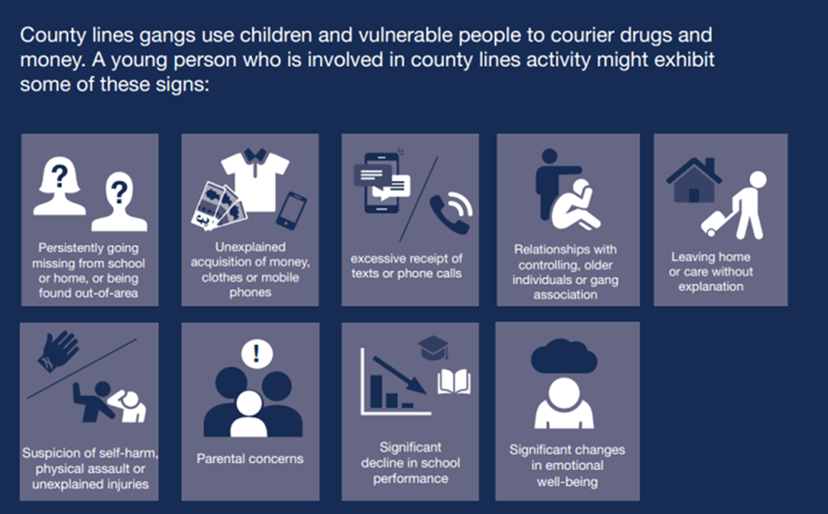
What to do if you have concerns
The best advice is to trust your instincts. Even if someone isn't involved in county lines drug dealing, they may be being exploited in some other way, so it's always worth speaking out.
You can speak to your local police by dialling 101, or in an emergency 999.
If you would rather remain anonymous, you can contact the independent charity Crimestoppers on 0800 555 111.
If you notice something linked to the railways, you can report concerns to the British Transport Police by texting 61016 from your mobile. In an emergency dial 999.
If you are a young person who is worried about your involvement, or a friend's involvement in county lines
A good option is to speak to an adult you trust and talk to them about your concerns.
You can also call Childline on 0800 1111. Childline is private and confidential service where you can talk to specially trained counsellors about anything that is worrying you.
Alternatively, speak to a children and young people's service like Catch 22. They work with children and young people of any age to help get them out of situations they're worried about, and have helped lots of children and young people involved in County Lines.


